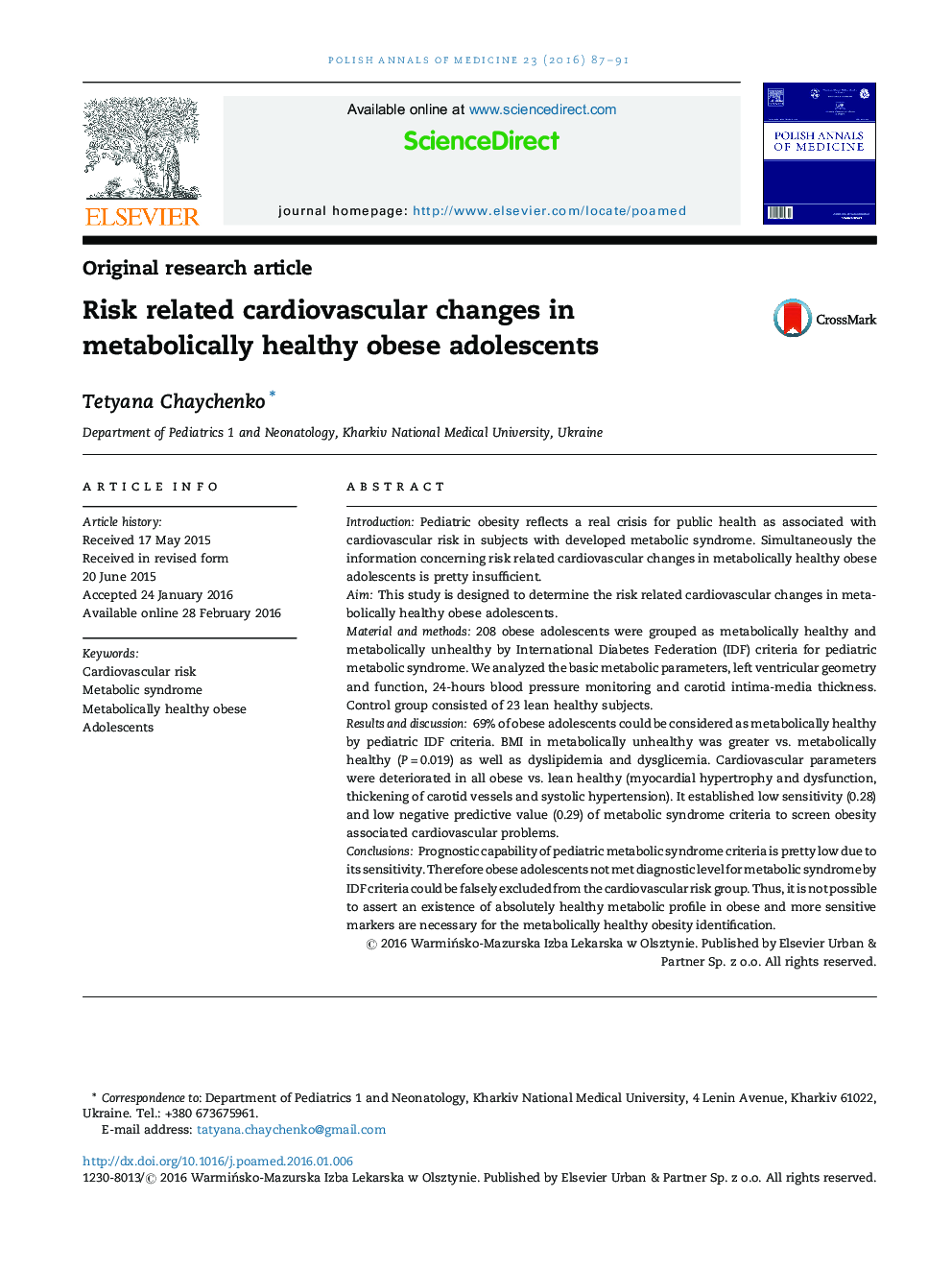| Article ID | Journal | Published Year | Pages | File Type |
|---|---|---|---|---|
| 2675290 | Polish Annals of Medicine | 2016 | 5 Pages |
IntroductionPediatric obesity reflects a real crisis for public health as associated with cardiovascular risk in subjects with developed metabolic syndrome. Simultaneously the information concerning risk related cardiovascular changes in metabolically healthy obese adolescents is pretty insufficient.AimThis study is designed to determine the risk related cardiovascular changes in metabolically healthy obese adolescents.Material and methods208 obese adolescents were grouped as metabolically healthy and metabolically unhealthy by International Diabetes Federation (IDF) criteria for pediatric metabolic syndrome. We analyzed the basic metabolic parameters, left ventricular geometry and function, 24-hours blood pressure monitoring and carotid intima-media thickness. Control group consisted of 23 lean healthy subjects.Results and discussion69% of obese adolescents could be considered as metabolically healthy by pediatric IDF criteria. BMI in metabolically unhealthy was greater vs. metabolically healthy (P = 0.019) as well as dyslipidemia and dysglicemia. Cardiovascular parameters were deteriorated in all obese vs. lean healthy (myocardial hypertrophy and dysfunction, thickening of carotid vessels and systolic hypertension). It established low sensitivity (0.28) and low negative predictive value (0.29) of metabolic syndrome criteria to screen obesity associated cardiovascular problems.ConclusionsPrognostic capability of pediatric metabolic syndrome criteria is pretty low due to its sensitivity. Therefore obese adolescents not met diagnostic level for metabolic syndrome by IDF criteria could be falsely excluded from the cardiovascular risk group. Thus, it is not possible to assert an existence of absolutely healthy metabolic profile in obese and more sensitive markers are necessary for the metabolically healthy obesity identification.
